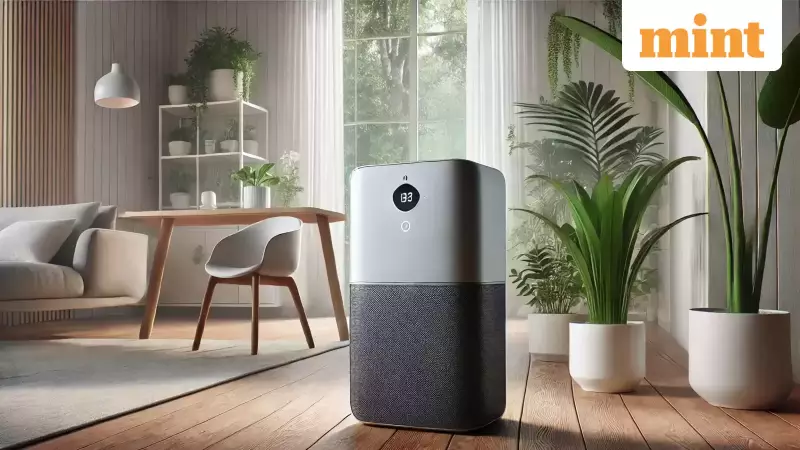
As pollution levels keep climbing in major Indian cities, the air purifier has transformed from a luxury item into a household essential. Yet, a cloud of confusion hangs over these devices. Many families invest in them but operate under false assumptions, leading to ineffective use and wasted money. Let's clear the air by dismantling the most persistent air purifier myths for 2025.
Common Misconceptions About Performance and Usage
A widespread belief is that air purifiers work like magic, cleaning a room's air in just a few minutes. This is far from reality. The process of air purification is gradual. Even powerful machines equipped with HEPA filters require a significant amount of time to circulate the air in a room and reduce the concentration of harmful particulate matter effectively.
Another myth limits the device's usefulness only to those with diagnosed health conditions. While it's true that air purifiers offer immense relief to asthma and allergy patients, their benefits are universal. These appliances work tirelessly to remove common pollutants like dust, smoke, pollen, pet dander, and the dangerous PM2.5, enhancing the air quality for every occupant.
Do you live in a spotlessly clean home and think you're safe? Think again. Many of the most harmful pollutants are invisible to the naked eye. In urban areas, microscopic particles easily infiltrate homes through windows, doors, and even on clothing, making an air purifier a wise precaution, not just a cleaning aid.
Some users also fear that opening a window for ventilation renders the purifier useless. While it's true that letting in heavily polluted outdoor air will spike indoor PM2.5 levels, ventilation remains important. The key is controlled ventilation. Many households successfully use their purifiers alongside brief periods of opening windows, especially by choosing times when the outdoor AQI is relatively better.
Debunking Myths on Filters, Odours, and Health
There is also confusion about how the machine itself operates. Cranking the fan to its highest speed does not necessarily mean better purification. The fan speed controls how quickly air is pulled into the device, but the actual cleaning is done by the core filtration system, primarily the HEPA and activated carbon filters.
When it comes to smells, air purifiers are not a cure-all. Models that include a robust activated carbon filter can significantly reduce odours from cooking or pets. However, they cannot completely eliminate every smell, especially persistent ones. For lasting freshness, the source of the odour must be addressed directly.
A dangerous myth is that HEPA filters last a lifetime. In truth, these filters are workhorses that trap and hold pollutants. Over time, they become clogged and saturated. Depending on your usage and the pollution levels in your area, they require replacement every 6 to 18 months. A clogged filter severely reduces the purifier's efficiency and can even re-release pollutants back into the room.
In the post-pandemic world, some believe an air purifier offers full protection from viruses. While it can lower the concentration of airborne particles, including some viruses, it is not a standalone shield. Proper hygiene practices, vaccination, and good ventilation are still essential layers of defence.
Choosing the Right Purifier and Managing Costs
When shopping, don't fall for the idea that a bigger purifier is always better. Effectiveness hinges on matching the device's Clean Air Delivery Rate (CADR) to your room size. An oversized model will consume more electricity than necessary, while an undersized one will struggle to clean the air, making it an inefficient purchase.
Finally, many Indians assume these appliances are power guzzlers. The reality is comforting. Most modern air purifiers are designed to be energy-efficient, consuming power comparable to a standard ceiling fan. The primary recurring cost is not your electricity bill, but the planned and essential replacement of the filters to keep the unit running at peak performance.
By understanding the facts, you can make smarter decisions, ensuring your air purifier works effectively to protect your family's health in an increasingly polluted environment.






